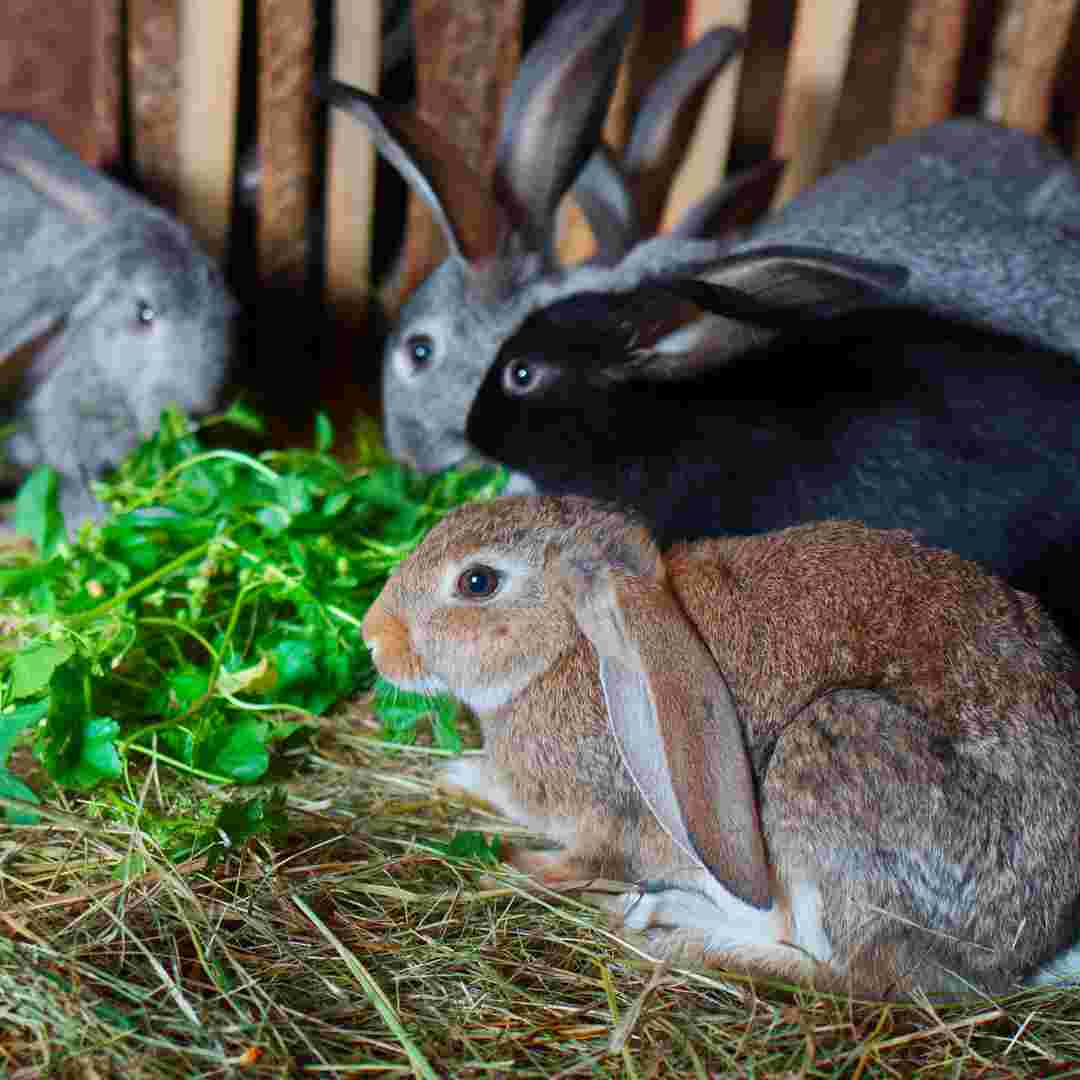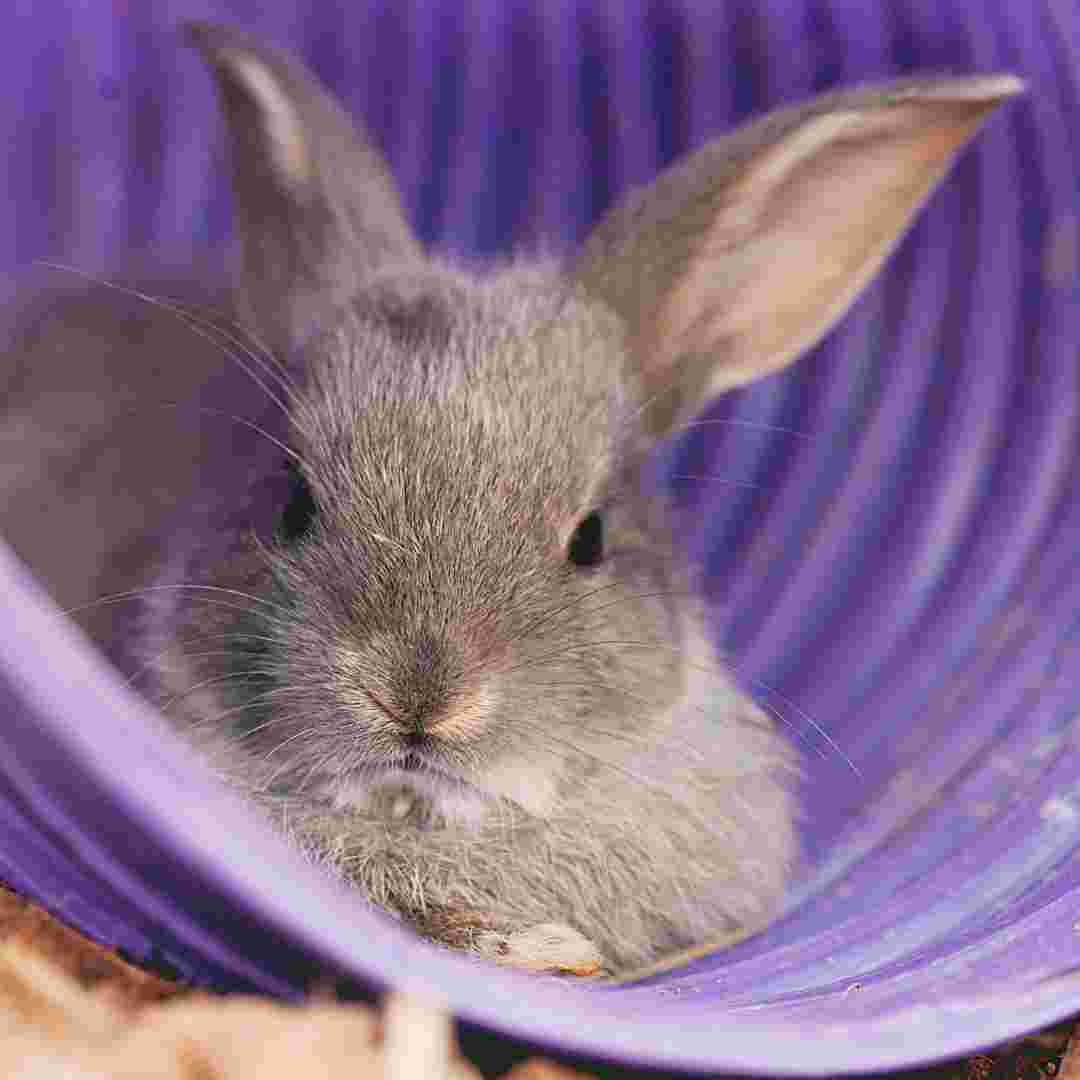Contents Table
Introduction
Understanding Rabbit GI Stasis Causes
Common Rabbit GI Stasis Dietary Causes
Impact of Stress on Rabbit GI Stasis
Rabbit GI Stasis Signs
Rabbit GI Stasis Treatment and Prevention
Q&A
Conclusion
Introduction
Pet rabbits often get life-threatening gastrointestinal (GI) stasis. A digestive process disruption slows food passage through the digestive tract. Poor diet, stress, dehydration, and lifestyle changes can cause GI stasis. GI stasis must be recognised and prevented to keep your rabbit healthy and happy.
Understanding Rabbit GI Stasis Causes
Rabbit gastrointestinal (GI) stasis can be lethal if untreated. It reduces gastrointestinal tract motility, reducing food and water digestion. Dehydration, tiredness, weight loss, and decreased appetite can result.
GI stasis in rabbits may be caused by numerous sources. Low-fiber diets are a major reason. Herbivorous rabbits need a high-fiber diet for digestive health. Fibre deficiency slows the digestive system, causing GI stasis.
Stress can also cause GI stasis. Rabbits are delicate and quickly stressed. Stress slows digestion, causing GI stasis. Environmental, dietary, and routine changes can generate stress.
GI stasis can also be induced by dental disease, gastrointestinal diseases, or intestinal parasites. Inflammation and irritation of the digestive tract can reduce motility.
Ingestion of hairballs or toys can also cause GI stasis. These things can block the digestive tract, reducing motility.
Recognising GI stasis and seeking veterinary care immediately are crucial. Depending on the cause, diet, medicines, or surgery may be used. Most rabbits recover with fast and proper treatment.
Common Rabbit GI Stasis Dietary Causes
Many diets can produce rabbit gastrointestinal (GI) stasis, a severe illness. Preventing and treating GI stasis requires understanding its nutritional origins.
Fibre deficiency is a leading cause of GI stasis. Herbivorous rabbits need a high-fiber diet for good digestion. Fibre deficiency slows digestion and causes GI stasis. Feeding your rabbit fiber-rich hay, fresh vegetables, and a few pellets can prevent this.
GI stasis is often caused by overeating. If fed too much, rabbits can grow overweight due to their small stomachs. Overfeeding can cause GI stasis because the digestive system cannot metabolise the food. Feeding your rabbit a healthy diet and monitoring their weight can prevent this.
Finally, GI stasis might result from a high-carb diet. Undigested carbohydrates can build up in rabbits' digestive systems. In order to avoid this, offer your rabbit a diet strong in fibre and low in carbohydrates.
You can avoid and treat GI stasis by recognising its nutritional causes. The right food for your rabbit should be high in fibre, low in carbs, and adequate for their size and weight. You can keep your rabbit healthy and happy by doing so.
Impact of Stress on Rabbit GI Stasis
Stress is a key cause of rabbit GI stasis. Rabbits with GI stasis build up gas and food in their intestines due to a slowed digestive process. This can lead to agony, dehydration, and death.
Changes in environment, diet, routine, or predators or other animals can induce stress. Stress hormones alter a rabbit's digestive tract. These hormones inhibit food flow through the intestines, causing GI stasis.
GI stasis can be caused by stress hormones and physical changes in rabbits. Stressed rabbits can have stiff muscles that clog their intestines. This can cause GI stasis from gas and food buildup.
Recognising and reducing rabbit stress is crucial. This can include providing a safe and comfortable environment, avoiding unexpected diet or routine changes, and offering plenty of activity and enrichment. If a rabbit appears stressed, seek medical assistance immediately.
Identifying and reducing stress in GI stasis can help rabbit owners keep their pets healthy and happy.
Rabbit GI Stasis Signs
Untreated rabbit gastrointestinal (GI) stasis can be lethal. GI stasis symptoms must be identified for quick and successful therapy.
Decreased faeces and urination are the most typical symptoms of GI stasis. Each day, rabbits make numerous faeces pellets and urinate. GI stasis may cause your rabbit to produce fewer pellets and urinate less.
Lethargy, stomach bloating, and appetite loss are further GI stasis symptoms. GI stasis may cause your rabbit to eat less or be less active. Swollen or bloated abdomens in rabbits may indicate GI stasis.
If your rabbit has any of these signs, take it to the vet. Medical treatment is needed immediately to treat GI stasis, which can be fatal. Your vet can diagnose and treat your rabbit. Dietary adjustments, hydration therapy, and medications may be prescribed.
By recognising GI stasis symptoms, you can treat your rabbit quickly and effectively. Contact your vet immediately if you have any of the aforementioned symptoms.
Rabbit GI Stasis Treatment and Prevention
Rabbits often develop life-threatening GI stasis. It causes gas and food buildup in the stomach and intestines due to decreased gastrointestinal tract motility. This might induce appetite loss, tiredness, bloating, and stomach pain.
GI stasis treatment requires identifying the aetiology. Dental problems, dehydration, and nutrition are common causes. If the cause is found and addressed, stasis may resolve itself. Medical intervention may be needed otherwise.
Fluids, electrolytes, and GI tract-stimulating medicines are used to treat GI stasis. Surgery may be needed to clear blockages or rectify anatomical defects.
Treatment and prevention of rabbit GI stasis are essential. The most crucial phase is feeding the rabbit a balanced, high-fiber, low-sugar, low-fat diet. Hay, fresh water, and exercise are also essential. Dental and other health issues should be detected and treated at regular veterinary appointments.
These steps can keep rabbits healthy and GI stasis-free.

Q&A
1. What's rabbit GI stasis?
Rabbit GI Stasis means the rabbit's gastrointestinal tract stops working. It can kill if not treated quickly.
2. What are Rabbit GI Stasis symptoms?
Lack of appetite, lethargy, bloating, and reduced faeces are the main symptoms of Rabbit GI Stasis.
3. What causes Rabbit GI Stasis?
Stress, nutrition, and environment can trigger rabbit GI Stasis. Hairballs or foreign objects can clog the gastrointestinal tract, causing it.
4. Treatment for Rabbit GI Stasis?
Rabbit GI Stasis is treated with fluids and gastrointestinal stimulants. Removal of obstructions may need surgery.
5. Can rabbit GI stasis be prevented?
Healthy eating, stress reduction, and environmental stability help prevent rabbit GI Stasis. Monitoring your rabbit's health and seeking veterinary care for GI Stasis symptoms is also vital.
Conclusion
In conclusion, rabbit GI stasis has many reasons and is complex. To provide the finest rabbit care, diagnose and treat the problem. Diet, stress, and medical factors cause GI stasis. It's crucial to consult a vet to determine the reason and treatment.
